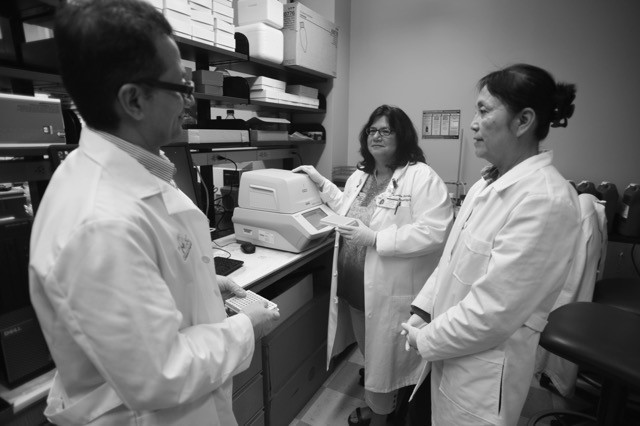Study Shows Promising Results for Treating Neuroblastoma
Dr. Giselle Sholler, a Grand Rapids pediatric oncologist, recently conducted a new study that is showing promising results for treating neuroblastoma. Dr. Sholler and her team are using a new drug called DFMO, which is believed to “target an important cancer stem cell pathway, turning off the stem cells and preventing tumor growth.” After three patients were diagnosed with a deadly and seemingly incurable form of the cancer, they became a part of the first successful phase of the drug trial, and are now long-term survivors. With this success, phase two of the study is underway, with 74 children around the country participating. Because neuroblastoma carries such a high risk of relapsing, the second phase of Dr. Sholler’s study “tests whether DFMO can help children whose neuroblastoma is in remission.” For the study, the children take the DFMO pill two times a day for two years, and so far nineteen out of twenty children who have completed their time are still cancer free. With encouraging results and a fully published phase one clinical trial available to the medical community, Dr. Sholler is hopeful in giving neuroblastoma patients an alternative form of treatment. Although used for decades to treat a West African sleeping disease, DFMO has never been used to treat children’s cancer before the study. The drug is promised to have less side effects than other cancer treatments, such as hair loss. The news about Dr. Sholler and the DFMO drug is spreading with hopsitals, universities, and other institutions quickly signing on to partner with the research. In December of 2014, over 2 million funds were raised to support this research by the foundation Beat NB, which plans to raise another ten million for the neuroblastoma study. Patrick Lacey, founder of Beat NB, had a ten year old son successfully complete Dr. Sholler’s phase one trial. With a now healthy and active son, Lacey claims that Dr. Sholler’s work is both “remarkable” and “life altering,” which is why he is determined to keep this truly ground-breaking study alive. For the full article written by Sue Thoms, click on the link provided. http://bit.ly/1SOi7TT
















